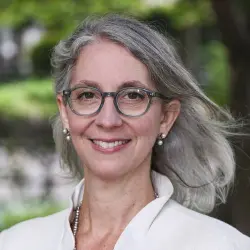

2:30 pm EDT - 4:00 pm EDT
Past Event
2:30 pm - 4:00 pm EDT
1775 Massachusetts Avenue N.W.
Washington, DC
20036
Around the world, students in special education are often kept separate from general education peers in their schools, if they attend the same school at all. However, evidence suggests that inclusive school environments benefit both special and general education students, reducing bullying and social isolation while increasing health and agency.
At the same time, a growing consensus of educators suggests that social and emotional learning (SEL) is crucial to school success and can be taught. SEL is critical not only in promoting improved behavior and inclusive school cultures, but also in promoting academic achievement and positive health and employment outcomes. If schools are to fulfill the promise of teaching 21st century skills, increasing attention should be paid to the important role of social and emotional learning and, in a special way, to achieving inclusive school cultures as an important outcome.
Special Olympics and other organizations, researchers, and policy makers are working to make schools into centers of inclusion where both general and special education students are supported and benefited in their development as classmates, peers, and friends. The implications of this work around the world are still being evaluated even as the urgency of addressing the gaps in access to education increases.
On September 12, the Center for Universal Education at Brookings and Special Olympics hosted a discussion on the impact of inclusion in schools and efforts to increase school inclusion in the United States and around the world. This event included brief presentations on the scholarly and policy implications of inclusion as well as first-hand narrative from a ‘Unified Pair’ of general and special education peers. These opening remarks were followed by a moderated discussion.
Moderator

Panelist

Brahima Sangafowa Coulibaly, Zia Qureshi, Aloysius Uche Ordu, Arushi Sharma, Jennifer L. O’Donoghue, Rebecca Winthrop, Alexandra Bracken, John W. McArthur
December 22, 2023

Thinley Choden
December 4, 2023

Thinley Choden
September 13, 2023